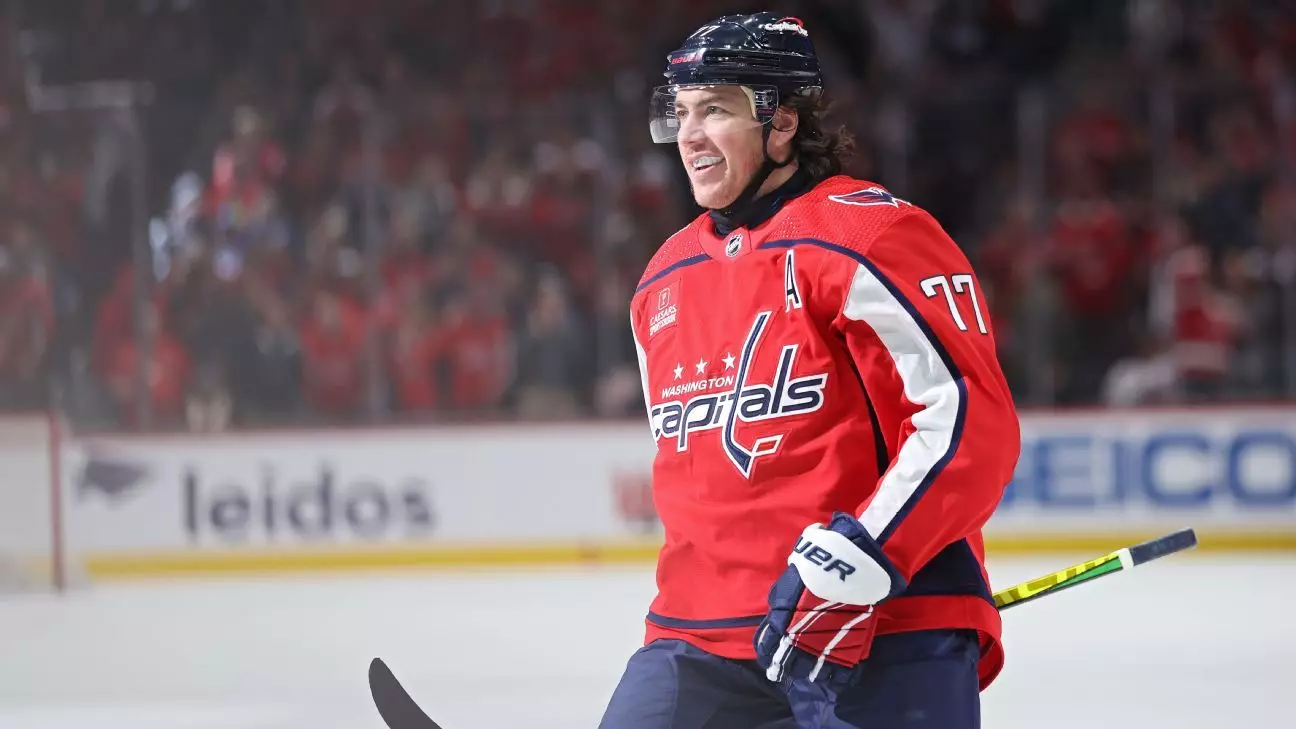The Washington Capitals face a significant challenge as they navigated the 2024-25 NHL season without forward T.J. Oshie, who has been placed on long-term injured reserve due to a persistent back condition. This decision, announced on the opening day of training camp, marks a critical juncture for both the player and the franchise. The need for Oshie’s withdrawal speaks volumes about the severity of his injury and the long-term implications it holds for his already-storied career.
Oshie’s back issues are not new; they have plagued him for years, frustrating him and the team alike. His recent medical evaluation revealed that the circumstances had escalated to a point where the forward, now 37 years old, could no longer reliably contribute to the team’s success. This situation also highlights a broader trend in the NHL, where players often struggle with injuries that compromise their effectiveness on the ice.
In a heartfelt public statement, Oshie underscored the struggle he faces beyond the rink. His back problems have left him in considerable pain, affecting his daily life and responsibilities as a father. There were harrowing moments when Oshie described his condition as debilitating enough that he could only lie on the floor, grappling with the inability to engage with his children fully. This personal dimension adds a layer of complexity to the situation, illustrating that the impacts of sports injuries extend well beyond professional careers and onto personal lives.
The narrative surrounding injuries in professional sports often overlooks the simple human aspect. Athletes like Oshie have aspirations, families, and futures to consider. It’s clear from his comments that his priority now is not only to find relief from the pain but also to explore viable, long-term solutions that will allow him to participate in family life more meaningfully.
As Oshie contemplates his present and future, the Capitals organization has reiterated its unwavering support for the veteran player. General Manager Chris Patrick’s statement resonated, emphasizing Oshie’s integral role within the team structure and leadership dynamics. “We will support and assist T.J. as he seeks a lasting solution for his recurring injury,” Patrick affirmed. This reflects a broader acknowledgment within sports that the well-being of the athlete is paramount, promoting a culture of care alongside competitive ambition.
Oshie’s recent statistics paint a picture of a player struggling against time and injury. With only 52 games played in the previous season and his production hitting rock bottom, questions about his ability to maintain his previous high level of performance loom large. The organization is clearly pivoting towards a younger talent pool, highlighting an impending generational shift in the Capitals’ roster. While dreams of returning to the ice continue to flicker for Oshie, reality suggests it is a climb filled with obstacles, and there may be a day when he must come to terms with the fact that his best days are behind him.
The ramifications of Oshie’s injury extend beyond his personal hardships and professional aspirations. They represent a call to action within the NHL regarding how teams manage aging players dealing with chronic injuries. Goals of longevity and health should overshadow the pressure to perform, and the Capitals seem to be embracing this philosophy.
The road forward for Oshie is uncertain but filled with hope. He remains committed to his health journey while expressing gratitude for the support received from fans and the organization. With one year left on his contract—a valued asset at $5.75 million—his future, whether on the ice or in other capacities, remains to be seen. The Capitals’ decision to prioritize Oshie’s health over immediate performance reflects a growing recognition that preserving a player’s quality of life is as important, if not more so, than the success on the scoreboard.
Sports evolve, and so must the narratives surrounding them. As Oshie battles through this challenging phase, his story reminds us of the tenacity of the human spirit and the importance of health over accolades—a critical lesson for athletes, teams, and fans alike.


Leave a Reply